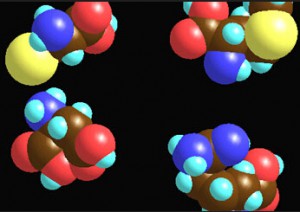Who discovered active peptides and how can they control the body’s cells? What is the active polypeptide and who found it? How does it control the body’s cells? In terms of the series of questions, maybe some scientists could also feel confused.

Actually, active peptides were found in 1920 but they aren’t studied by more experts until 1958. In 1958, a Jewish-American professor at the University of California showed his research results on active peptides to the public community. After 38 years of painstaking research, the study was regarded as a successful advent using recombinant technology, which could control the quantity, quality and speed of protein synthesis, as well as human diseases and aging.
Specifically, active peptides such as acrorhagin could be a kind of substance (the body’s own secretion) in the nerve tissue and other tissues or organs. Involved in the growth and metabolism of protein, fat and sugar, active peptides control the normal rate of protein synthesis with the increasing or decreasing secretion amount. In 1990, Dr. Rudman formally proposed to explain the theory of human disease and aging causes, using active polypeptide in anti-aging and disease prevention for the first time.
In the experiment, some scientists found that active peptides could closely monitor the expression and replication process of cells just like an automatic operation. When cells divide and replicate normally, active peptides ensure the normal synthesis of proteins and normal cell division. When an error occurs during cell division, active peptides immediately command error cell replication to stop and fix it. Active peptides can promptly cut, splice and repair exception error cells to ensure the normal protein synthesis, enabling the body in a healthy state.
Scientists believe active peptides are the headquarters for human health. Divided by age, active polypeptides in childhood to adolescence own more secretion, which is intended to enable the body to grow rapidly, and the appropriate secretion would maintain until about 25-30 years old. Upon reaching 30 years old, bioactive polypeptides will gradually reduce the secretion.
When the secretion of active peptides in human body is sufficient and owns high activity, activation of abnormal diseased cells in ensuring human health might be necessary. Anyway, supplementing active peptides on the prevention and treatment of cardiovascular, bone and joint diseases, endocrine system diseases, gastrointestinal diseases, diabetes and tumors has a very important significance. Active peptides help to decipher the key issues of human sickness and death, which also discover a new era for the treatment of varying human diseases.